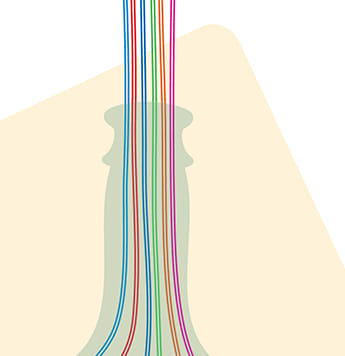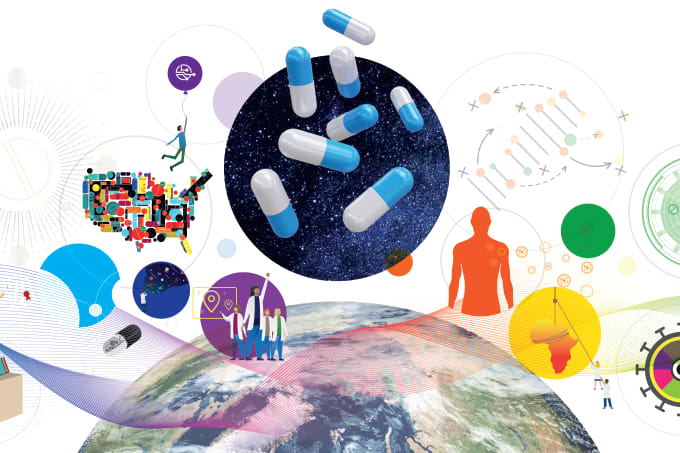
As part of Sandoz's strategy to strengthen in-house biosimilar development and manufacturing, a non-binding term sheet with Evotec SE was signed in July 2025 to potentially acquire Just-Evotec Biologics (JEB) EU SAS, including its manufacturing facility in Toulouse, France.
Sharing insights into the company’s strategy for scaling biosimilar manufacturing, a sector projected to reach $300 billion over the next decade, Glenn Gerecke, Chief Manufacturing and Supply Officer at Sandoz, discusses the need to expand capacity in Europe to meet rising demand.
Why is action needed to increase manufacturing capacity for biosimilars?
Since Sandoz received European approval for the world's first biosimilar medicine in 2006, these medicines have revolutionized access to life-changing biologics.
However, Europe now faces a critical inflection point. Demand for biosimilars is rising rapidly, but manufacturing capacity risks falling behind. While Europe has long been a hub for high-quality biomanufacturing, there is growing concern about a potential shift in investment away from the region.
The COVID-19 pandemic exposed the vulnerability of global supply chains and highlighted the risks of excessive dependence on offshore production. This has sparked growing concern about supply security, especially in critical areas like biosimilars.
To ensure sustainable access in the years ahead, long-term investment is needed in infrastructure that supports large-scale biosimilar development and manufacturing. Europe now has a strategic opportunity to strengthen its biomanufacturing capabilities and build a resilient, future-ready ecosystem.
It is important to act early and decisively to meet current demand – as well as to position ourselves for the projected $300 billion biosimilar market opportunity over the next decade. This anticipated level of growth represents a scale of expansion the industry has not experienced before.
How is Sandoz optimizing and expanding its manufacturing footprint in Europe?
One recent success in Europe is the strategic expansion of our biosimilars manufacturing footprint through investments across Europe. As just one example, we have committed over €1 billion to create an end-to-end biosimilars hub in Slovenia. Our proposed acquisition of Just-Evotec Biologics’ activities in Toulouse also supports our strategy of reinforcing in-house biosimilar capabilities while creating additional strategic flexibility.
We are continuously evaluating and optimizing our global manufacturing network to ensure it remains agile, resilient, cost-competitive, and aligned with future demand.
We are also investing in areas outside of biosimilars. For example, we’ve invested €200 in our antibiotics production hub based around Kundl, Austria – the last major end-to-end producer of penicillin in Europe, including the critical fermentation stage.
Sandoz is moving to more integrated and continuous manufacturing models. What barriers have you had to overcome?
Continuous manufacturing certainly comes with its complexities, but I am convinced that this shift offers Sandoz significant advantages – especially in terms of efficiency, flexibility, and sustainability.
Continuous manufacturing enables process intensification and automation, resulting in higher output with a smaller footprint and reduced resource consumption. A high level of automation also minimizes manual intervention, allowing for uninterrupted production and enhanced reliability.
Additionally, the ability to switch between products quickly and safely improves our responsiveness to market needs, while reducing waste and environmental impact.
What role can automation play in addressing workforce and productivity challenges across manufacturing sites?
Automation is a key driver of productivity, quality, and workforce efficiency. From exploring robotic process automation in packaging to evaluating AI-driven quality control, we are looking into how technology can support our teams and strengthen operational resilience. A concrete example is the new site we are building in Brnik, Slovenia, which will host the aseptic production of injectable biosimilar products, including autoinjectors and pre-filled syringes. The site will feature next-generation robotics technology, contributing to the development of Industry 5.0 – a concept that builds on Industry 4.0 by emphasizing human-machine collaboration in the region and within the pharmaceutical sector. This approach not only boosts efficiency and reliability; the goal is to set a new standard for smart, sustainable manufacturing.




